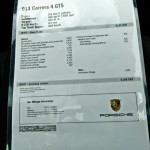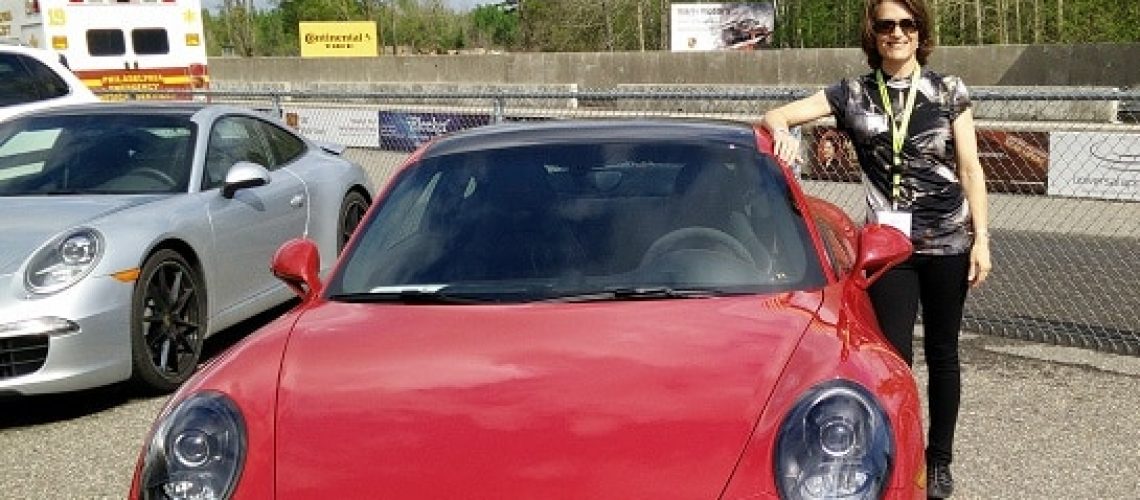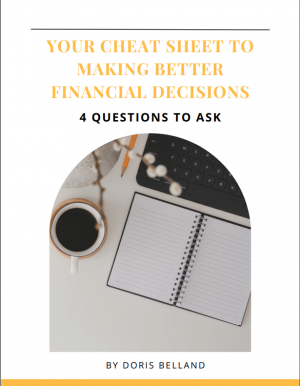This week, cars have popped up on my radar on two occasions. First, my friend Sandra took me and several other ladies to a race track to test-drive a variety of Porsche models.
That’s me in the photo beside one of the cars I drove. Here’s the full list of what I got to try out:
- Boxster GTS
- Cayman GTS
- 911 Carrera 4 GTS
- Panamera GTS
- Cayenne GTS
- Panamera S E-Hybrid
- Cayenne S E-Hybrid
What an adrenaline rush!
As I said to a friend, even the family vehicles drive like sports cars. We hit speeds on the track that I have never attempted elsewhere, and yes, we were guided by a professional racer. The track owners are far too sensible to let wannabes have a go at it by themselves.
I walked away from the experience thinking that it is very easy to fall in love with gorgeous, performance vehicles like these.
The second thing that made me think about cars was a newsletter from an accounting firm in which the first two lines were: “Buy or lease? That is the question that arises whenever a business needs a new asset.”
And off it went on a discussion of the best approach when you’re looking for a new car.
But now here’s a tricky question: Is a car really an asset?
When you fill out a mortgage application, there is a section in which you are asked to list your assets. That’s where cars show up because they have a market value.
If you were to put yours up for sale tomorrow, you’d get money for it. Therefore, it’s considered an asset by most people.
However, I repeat the question: Is a car really an asset? I no longer think so.
Years ago I read Robert Kiyosaki’s first book Rich Dad, Poor Dad and in it he says this, “Rich people acquire assets. The poor and middle class acquire liabilities, but they think they are assets.” He then went on to define assets and liabilities in his own way:
An asset is something that puts money in my pocket.
A liability is something that takes money out of my pocket.
For just a moment, forget what accountants, bankers, real estate agents, and financial planners have to say about assets and consider only Kiyosaki’s definition.
In his view, if something is an asset then it will put money in your jeans; if not, it will cost you money.
So let me ask you, does your car actually put money into your pocket?
Probably not.
No matter how much you may love your car, I’m willing to bet that it has never once paid you (unless you own a car rental company).
Sure, it may be useful to get you to work or in front of your clients, but at best it’s a tool to help you earn money; it’s not likely the source of your earnings.
And it’s an expensive tool at that. When you factor in insurance, regular maintenance, repairs, gas and depreciation, the numbers really start to add up.
We used to be a two-car family. Then my husband decided that he’d much rather take the bus or taxis to local clients and simply use taxis to get him to and from the airport for business trips.
Ditching one car put thousands of dollars back into our pocket every year, even when the costs of alternative transportation were factored in.
Just to be clear, I’m not arguing against having a vehicle; I’m simply pointing out that cars cost money and if we start to think about them from Kiyosaki’s cash flow perspective, we realize pretty quickly that, in fact, they’re a liability.
They’re useful and sometimes essential, but they nonetheless take money out of our pockets.
It’s good advice.
What I like about Kiyosaki’s take on the business of assets and liabilities is that it forces us to take a good look at the items we spend our money on.
His point is that if you focus on buying cash-producing assets, you will have the disposable income to enjoy other perks, like beautiful cars.
He took this to an extreme when he was looking to buy a very nice car for himself. Rather than simply spend cash to buy a car (i.e. a liability), he told himself that he would use that money to invest in a business and he’d buy the car when the business produced enough positive cash flow to cover the cost. Now that’s discipline!
 Beautiful cars like the ones I test-drove don’t come cheaply.
Beautiful cars like the ones I test-drove don’t come cheaply.
The recommended base prices of the models I drove ranged from $83,000 to $137,000. Are they worth it? That depends.
If:
- you love the car
- and beautiful cars are high on your list of core values
- and your financial house is in order (i.e. you have an Emergency Fund set up, your investments are where they need to be to achieve your financial goals, and you have no corrosive debt)
- and you can easily afford it with respect to your earnings
then they’re worth it. The feeling of being in such a beautiful car is compelling.
When you buy a car, remember this:
What you’re buying is really a liability.
And that’s OK as long as you’re not shooting yourself in the foot financially by ignoring other areas that need the dollars.
Remember the question to ask, “Will this put money in my pocket or will it take money out?”
I’ve already told my husband that my next car will not be a sensible car. It will be a lovely thing – though not a Porsche – that feels terrific, and my children will not be allowed to breathe on it.
First though, I have many more assets to buy to produce positive cash flow.
Want a proven process to help you make savvy financial decisions that are in your highest, best interests every time?
Grab your copy of my FREE Cheat Sheet.
In it, you’ll discover the four key questions to ask yourself, in order, to gain total clarity on the right financial decisions for you.
This process works for all decisions, big and small.
Make indecision, second-guessing, and analysis-paralysis a thing of the past.



3 Responses
You nailed this one, Doris. As you know, I’ve been involved with the car business on numerous levels for much of my life and though the cars (and the business itself) have changed an awful lot since the 1980s, one thing that hasn’t changed is the willingness of too many people to spend a ton of money (often financed on highly unfavourable terms) on prestige vehicles that either don’t meet their needs or vastly exceed them.
Dave, I couldn’t agree more. Thanks for sharing your experience.
I also think that it is much better to invest to a business first rather than to buy luxury things for yourself. I think that by doing this you’ll be able to secure your future and your family as well when you able to have a successful business.Thanks for sharing this article.